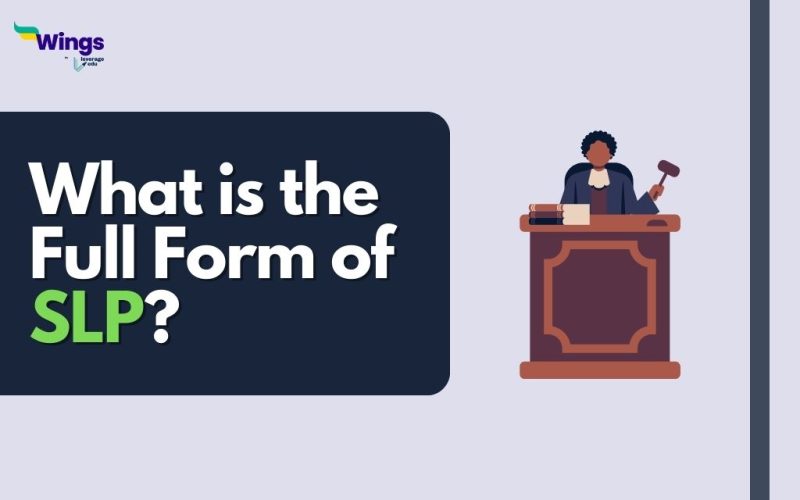The full form of SLP is the Special Leave Petition. It holds a significant position in the Indian Judiciary. The Supreme Court possesses a unique authority to allow for an SLP when there is a significant legal question or evident injustice. This grants the affected party permission to present their case in the apex court, appealing a decision made by any court or tribunal in India. Unlike a direct appeal, an SLP is a petition for permission to appeal. Once filed, the Supreme Court of India can choose to hear the case and, if appropriate, grant permission, effectively turning the petition into an appeal. Subsequently, the Court can proceed to hear the case and deliver a verdict.
Also Read: What is the Full Form of PIL?
Provision for SLP under the Constitution of India
Table of Contents [show]
The provision for Special Leave Petition is mentioned under Article 136 of the Constitution of India. The clauses of this article are as follows:
- Article 136 (1): Regardless of the provisions within this section, the Supreme Court holds the authority to exercise its discretion and provide special permission to appeal against any decision, decree, determination, sentence, or order issued by any court or tribunal within India’s jurisdiction.
- Article 136 (2): The content of clause (1) does not extend to any decision, determination, sentence, or order issued by a court or tribunal established under laws pertaining to the Armed Forces.
Also Read: What is the Full Form of CJI?
Who can File a Special Leave Petition?
SLP can be initiated by the affected party as a response to a judgment or a decision declining to issue a certificate. It can be used in situations involving significant legal questions or evident injustice. This enables the concerned party to gain special permission to present their case before the highest court, challenging the rulings of any court or tribunal within India’s jurisdiction. The petitioner needs to provide a concise summary of the case’s facts and issues, along with a chronological list of dates.
Furthermore, the petitioner is required to formulate legal questions for the purpose of appealing against the judgment. After the SLP is formally registered and brought before the Supreme Court, the petitioner will be given an opportunity to present their arguments in front of the court. Depending on the merit of the case, the Court will notify the opposing party, who must submit a counter affidavit expressing their stance. Subsequently, the court will determine whether to grant permission or not. If the Supreme Court approves the petition, the case transforms into a civil appeal and will be reexamined in the apex court.
Also Read: How to Become a Judge: Qualifications, Colleges & Salary
This was all about the full form of SLP. Stay in tune with Leverage Edu for more informative full forms and General Knowledge topics for competitive exams.
 One app for all your study abroad needs
One app for all your study abroad needs















 45,000+ students trusted us with their dreams. Take the first step today!
45,000+ students trusted us with their dreams. Take the first step today!
